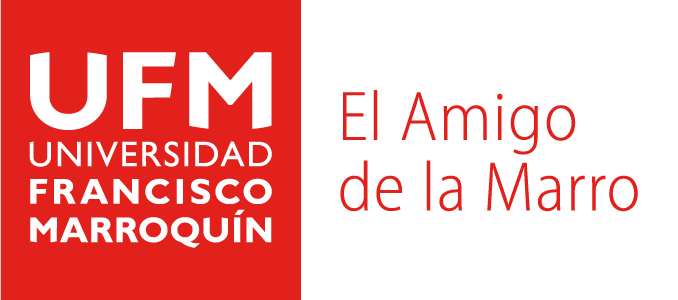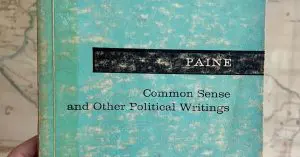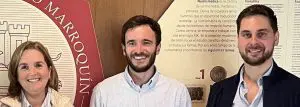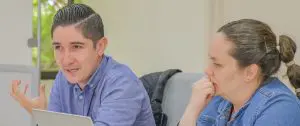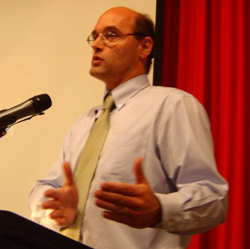 |
| Rob Richie, at the podium in the UFM’s Friedrich A. Hayek Auditorium |
The election system by Instant Runoff Voting is a voting method that is based on the scale of preferences of the voter and, one of its main advantages is that it solves problems such as «the candidate of my preference does not have any opportunity to win the election so I will vote for someone that has possibilities, this way I don’t waste my vote», or «Why should I vote, if my vote does not count anyway?».
Rob Richie, executive director of
FairVote and coauthor of Whose Votes Count, visited Universidad Francisco Marroquín last August 14th of 2007 to meet with professors of this house of studies and to lecture a conference about the Instant Runoff Voting system.
Through IRV, instead of choosing and marking the ballot in favor of a single candidate, the voter emits his suffrage in favor of several candidates, according to the order in which he prefers them. If the competition is between the candidates A, B, C and D, the voter chooses among them his first place option. Then he indicates which candidate is the one in his second preference in case his first option was eliminated for being the one that received fewer votes. In a similar way he would vote for his third and fourth preference.
This system allows, the voters, not only to mark which is their favorite candidate in the ballot; but it also allows them to order, in order of preference, the rest of the candidates in case his first option was not favored by most of voters.
In this way, the vote is not wasted because the winner is elected in a single instantaneous round of voting; and people have the opportunity to vote according to their values and ideals, and not in response to their fears.
The system, in addition, eliminates the political strategies necessary for a second electoral round and, its suppression, is a substantial saving of resources for the tax payers.
Richie met with professors from the UFM’s Henry Hazlitt Center, and in the evening he lectured a conference to students, professors and guests. He was interviewed by Gustavo Montengro, from the Magazine Tribune, by Prensa Libre and then he knew the Popol Vuh Museum, the New Media Digital Resources Center and the School of Businesses of this house of studies.
In Guatemala, the
Centro de Estudios Económico Sociales, the
Centro de Análisis de las Decisiones Públicas and
ProReforma are working in an IRV system proposal.
More photos,
here.
Recientes
- 1
- 2
- 3
- …
- 1.542
- Siguiente »
